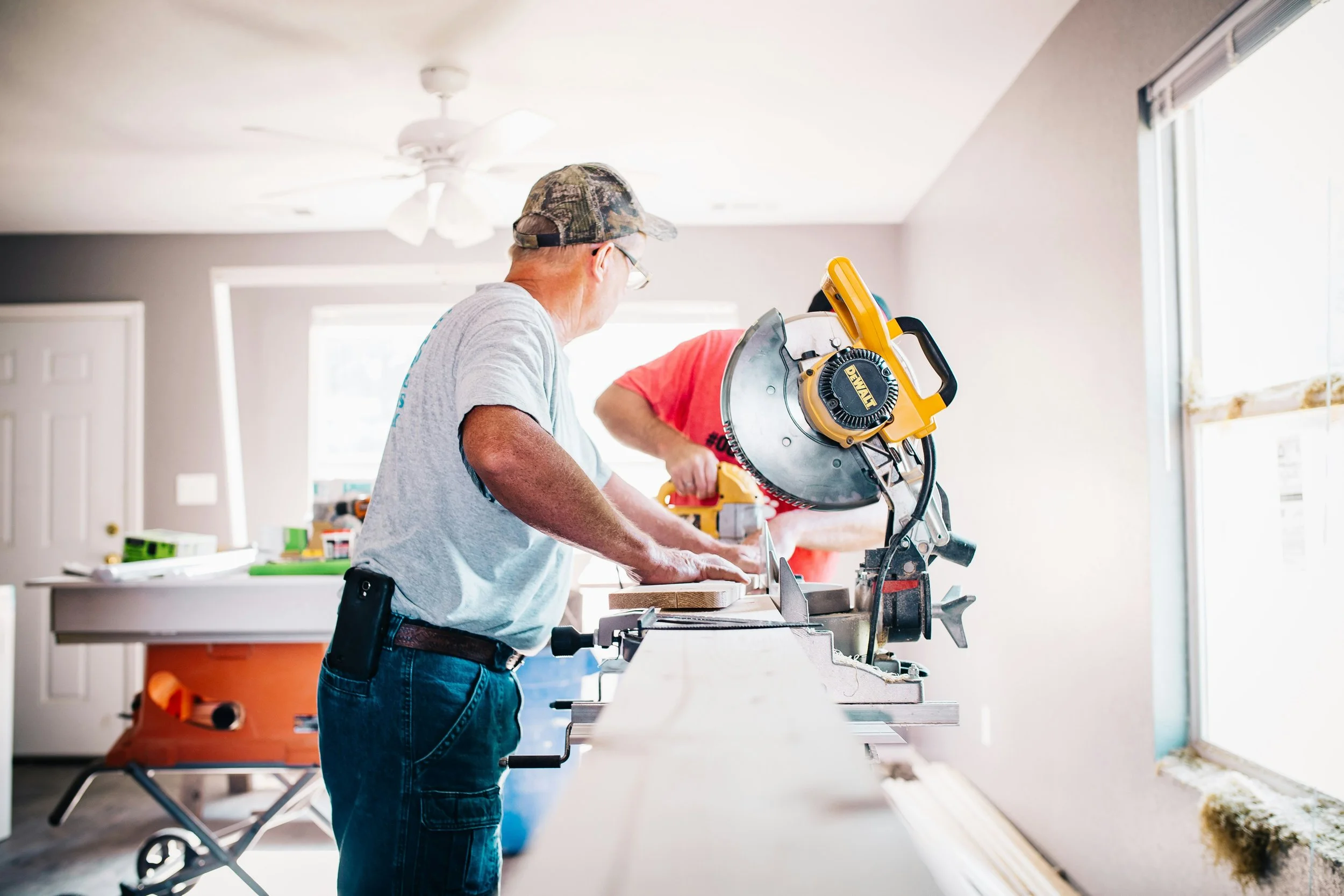Renovation Essentials: Must-Have Tools and Supplies for Every Home Improvement Project
RH Business Marketing Solutions
Embarking on a home improvement project can be exciting and rewarding, offering a way to personalize and enhance your living space. However, the success of any renovation largely depends on having the right tools and supplies.
This not only ensures that the work can be done efficiently and correctly, but also helps in achieving professional-grade results even for DIY enthusiasts.
The Rise in DIY Projects
In recent years, there has been a significant increase in DIY projects among homeowners, driven by a desire to customize their spaces and often, to save on costs.
While many tasks can be managed independently with the right tools and a bit of know-how, there are situations where it is crucial to call in professionals, especially for projects involving electrical work, plumbing, or structural changes, where safety and regulations must be strictly followed.
Essential Tools for Home Renovation
For most home improvement projects, a well-equipped toolbox is essential. Here are some of the basic categories of tools that should be considered:
1. Measuring Tools: Every project starts with accurate measurements. Tools like tape measures, rulers, and laser levels are indispensable.
2. Cutting Tools: Depending on the material involved, different cutting tools are required. Utility knives, saws (hand saws and power saws), and tile cutters are a few examples.
3. Fastening Tools: To assemble or secure materials, tools such as hammers, screwdrivers, and wrenches are necessary. For more demanding tasks, power tools like drills and impact drivers greatly enhance efficiency and ease of use.
4. Power Tools: For more intensive renovations, power tools such as sanders, jigsaws, and rotary tools can save time and effort, providing professional results.
Must-Have Supplies
Beyond tools, the right supplies are critical for the execution and completion of any home improvement project. These include:
1. Paints and Primers: A fresh coat of paint is one of the easiest ways to transform a space. High-quality primers and paints are crucial for achieving a durable and aesthetically pleasing finish.
2. Nails and Screws: These fasteners come in various sizes and types, each suited for different materials and purposes. Choosing the right nails and screws is essential for the stability and longevity of your work.
3. Other Fixtures: Depending on the project, other necessary supplies might include adhesives, sealants, and finishing materials like grout or caulk.
Innovations and Recommendations
Staying updated with the latest products can significantly impact the efficiency and outcome of your projects.
Eco-friendly paints and automated power tools that offer better precision and safety features are recent innovations that have been well-received in the market.
Always look for products that align with your specific needs and have positive reviews from other DIYers or professionals.
When to DIY and When to Call Professionals
Assessing the Scope of Your Project
Deciding whether to tackle a renovation project yourself or to enlist professional help depends on several factors.
Firstly, assess the complexity of the project. Simple tasks like painting a room or replacing cabinet hardware are generally safe and manageable for most DIYers.
However, projects that involve structural changes, electrical systems, or plumbing should often be handled by licensed professionals due to the technical knowledge and safety concerns involved.
Considerations for DIY vs. Professional Help
● Complexity: If the project requires specialized skills or knowledge of building codes, it's safer and more prudent to hire professionals.
● Safety: Projects that pose significant risks, such as roof repairs or major electrical work, require professional expertise to ensure they are done safely.
● Time Commitment: Consider how much time you can realistically dedicate to the project. Larger projects can become overwhelming without a team of professionals to handle them efficiently.
Planning Your Renovation Project
Effective Project Planning
Thorough planning is crucial to the success of any renovation project. Start by defining the scope of your project, then create a detailed plan that includes every task that needs to be completed.
Budgeting is another essential step; ensure you account for all materials, tools, and, if applicable, labor costs.
Build a timeline that outlines when each phase of the project will be started and completed. This helps in managing the renovation efficiently and can reduce the disruption to your daily life.
Importance of Permits and Local Regulations
Before beginning any work, it’s important to understand the local building codes and regulations. Depending on the nature of your project, you may need to obtain permits from your local municipality.
These permits ensure that the structural integrity of your home is maintained and that all renovations are up to current safety standards. Failing to adhere to these regulations can result in fines, and potentially, having to redo the work.
Keeping Safe During DIY Projects
Essential Safety Gear and Practices
Maintaining a safe working environment is paramount during any DIY project. Always wear the appropriate safety gear, which includes safety goggles, gloves, ear protection, and dust masks. These items protect against common hazards such as flying debris, sharp objects, noise, and inhalable particles.
Ensure your workspace is well-ventilated, especially when using volatile substances like paints and solvents. Familiarize yourself with the operation of power tools before use and keep a first aid kit readily accessible for any minor injuries that might occur.
Wrapping It Up: A DIYer's Guide to Home Renovation Success
In this guide, we've navigated the essentials of tools, supplies, and strategic planning necessary for tackling home renovation projects confidently.
Understanding when to take the DIY route and when to call in the professionals can save both time and money while ensuring safety and compliance with local regulations.
As you embark on your next home improvement endeavor, remember that preparation is your best tool, and knowledge is your greatest ally.
By equipping yourself with the right resources and maintaining a focus on safety, your DIY projects are bound to be both rewarding and successful.





